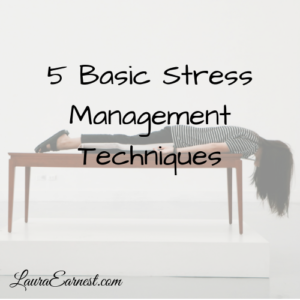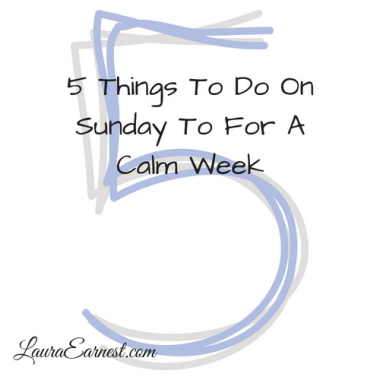
5 Basic Stress Management Techniques
Stress, either chronic or acute, can have major impacts on your productivity (see Stress Makes You Stupid) and happiness. Today we will look at 5 basic ways to manage your stress.
With the additional level of stress I’ve been living with during the past few weeks as my life completely changed, I’ve had to deal with a lot of stress. It’s crept into and affected just about every aspect of my life – and not in a good way. I’ve had to put many of these techniques into practice in order to be able to function in the past few weeks.
Please note that I am not a doctor or therapist. If you are suffering from elevated levels of stress, I urge you to visit your doctor and get some help with managing the condition.
5 Basic Techniques to Manage Stress
Most of these basic techniques are things we should be doing anyway, as a way to healthy living. However, when you are stressed, these seem to be the first things that fall out of the daily schedule.
1. Get Enough Sleep
Sleep is necessary to repair your body from the effects of stress. Sleep drops cortisol levels, which are built up by stress. The ironic part is that if you are stressed, it can be difficult to sleep.
The other items in this list can help you with sleep, but if you are having trouble, please see your doctor. She can recommend techniques and help – anything from herbal teas, behavior modification to a short-term course of medicine.
Further reading: 3 Signs You’re Too Stressed to Sleep—and How to Unwind
2. Eat Healthy
It is *so* tempting to load up on fat and sugar when you’re stressed. These foods give quick and fast energy, allowing you to fool your body into thinking you have lots of energy. But these are short-term solutions.
Eating a healthy diet, with lots of fruit and vegetables and plenty of water, can help give your body the long-term support it needs to weather the stress storm.
3. Avoid Sugar and Caffeine
For the same reason you should eat healthy, you should also avoid sugar and caffeine. Both lead to crashes after a spike of energy – and who needs to feel more tired when you’re already tired?
The other reason to avoid sugar and caffeine is that they both depress the immune system. Why risk getting sick when you are already stressed?
4. Get Outside
Sunshine and fresh air can lift the spirits and remind us that there is more going on than just our personal situation. Being outside – even if it is just sitting or parking further away from the door – can have a great effect on your well being.
Of course, you must notice what is going on. Being wrapped in your own thoughts doesn’t allow you to take in deep breaths, or hear the birds or feel the sunshine on your face.
Further reading: Come outside: the benefits of fresh air
5. Watch Your Breath
As a flute player, I am used to having a certain posture that allows me to take in full lungs of air from the abdomen (and not breathe from the top half of my lungs, like most of the people on the planet). However, when I am stressed, my shoulders slump and I stop being able to breathe well.
Taking in full breaths is calming; breathing shallower makes you breathe more rapidly and convinces your body you are stressed.
Further reading: Stress Management: Breathing Exercises for Relaxation
Summary
Basic stress management doesn’t have to be complicated or difficult. By focusing on proper sleep and eating well, limiting sugar and caffeine, getting outside and breathing properly, you can ease some of the stress.
–Photo by Pim Chu on Unsplash–



